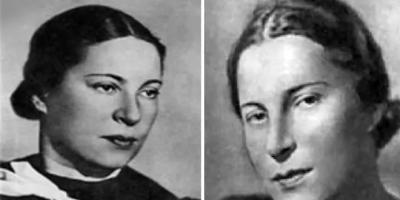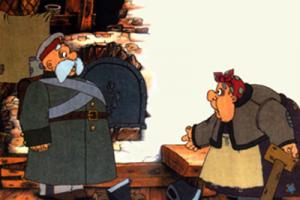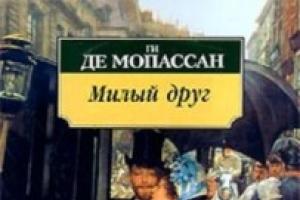Vocabulary:
compulsory - обязательно;
nursery school [ˈnəːsərɪ] - детский сад;
Primary School [ˈpraɪmərɪ] - начальная школа;
Secondary School [ˈsekəndərɪ] - средняя школа;
last - продолжаться;
General Certificate - Общее свидетельство;
A-level - уровень А;
higher - высшее;
receive - получать;
accommodation [əkɒməˈdeɪſ(ə)n] - жилье;
Twelve million children visit about 40.000 schools in Britain. Education in Great Britain is compulsory. All British children must stady at school between the ages of 5 and 16. Many of them stay longer and take school-leaving exams when they are 18. But before that age of 5 many children can go to a nursery school, also called play school.
In Primary School and First School children learn to read and write and the basis of arithmetic. In the higher classes of Primary School (or in Middle School) children learn geography, history, religion and, in some schools, a foreign language. Then children go to the Secondary School.
Compulsory secondary education begins when children are 11 or 12 and lasts for 5 years. Secondary school is traditionally divided into 5 forms: a form to each year. Children study English, Mathematics, Science, History, Art, Geography, Music, a Foreign language and have lessons of Physical training, Religious. At the age of 7,11 and 14 pupils take examinations in the core subjects.
At the age of 16 pupils take General Certificate of Secondary Education exams in several subjects. After that they can try to get a job, go to college of further education, or stay at school for another 2-3 years.
If they stay at school after 16, or go to a college of further education, they take school-leaving A-level exams at the age of 18. After that, they may choose to go to a university or a college of higher education.
In England there are 47 universities, including the Open University which teaches via TV and radio, about 400 colleges and institutes of higher education. The oldest universities in England are Oxford and Cambridge. Generally, universities award two kinds of degrees: the Bachelor’s degree and the Master’s degree.
Students may receive grants and loans from their Local Educational Authorities to help pay for books, accommodation, transport and food. However, most students should pay these loans back after they get a job.
Most students in Great Britain live away from home, in flats or halls of residence. To pay for education, many students have to work in the evening and during their summer vacations.
Some parents choose private schools for their children. They are very expensive but considered to provide a better education and good job opportunities.
Топик по английскому языку на тему: Education in Great Britain / Образование в Великобритании
,который поможет вам разобраться в непростой системе британских образовательных учреждений.
Топик по английскому Образование в Великобритании (Education in Great Britain) – очень интересная тема, потому что позволяет сравнить систему образования британцев с другими.
Который также поможет сформировать представление о том, что и где изучает ваш британский собеседник, а также какие экзамены ему предстоит сдавать.
Топик по английскому Образование в Великобритании (Education in Great Britain) рассказывает не только о школах, но и об известных высших учебных заведениях Великобритании, а также на какие типы подразделяются университеты в Великобритании.
Текст-----
Education in Great Britain
Education in Great Britain is compulsory and free for children from 5 to 16 years old. Some children attend kindergartens from the age of 3. However, it"s not compulsory. In kindergartens, children learn very simple things like colours, numbers and letters. They also play games and sleep after lunch. There is always someone keeping an eye on children, no matter what they do.
Compulsory education lasts 6 years; it begins at the age of 5 when children go to primary school. There are two periods: pupils from 5 to 7 years old attend infant schools and pupils from 7 to 11 years old attend junior schools.
The classes in infant schools usually consist of playing games and getting acquainted with teachers, classrooms and desks.
When children are 7 years old, the real studying begins. Pupils don"t play very much, they have classes where they sit at desks, write, read and answer the questions.
Compulsory secondary education consists of 5 forms and lasts 5 years. It begins when children are 11 or 12 years old. Children study History, English, Art, Mathematics, Geography, Music, Science and Foreign languages. There are also lessons of Physical training and Religion. At the age of 7, 11 and 14 pupils take examinations in the core subjects – Mathematics, English and Science.
There are 3 types of state secondary schools in Great Britain: comprehensive schools, grammar schools and modern schools.
Comprehensive schools take pupils without exams. Children are divided into humanitarian or technical groups according to their abilities.
Grammar schools give secondary education of a very high standard. At the age of 11 children pass tests to enter a grammar school.
Modern schools don"t prepare pupils for universities, but for practical jobs.
At the age of 16, pupils take the General Certificate of Secondary Education examination. The subjects for the exams are chosen by the pupil in the third or in the forth form.
After GCSE pupils have a choice: either they go to a Further Education College or continue their education in the sixth form. Those who stay at school, study for 2 more years for Advanced Level Exams in two or three subjects. It is necessary to get a place at one of British universities.
There are also about 500 private schools in Great Britain, they are very expensive and only 5% of schoolchildren attend these schools. The most famous British public schools are Harrow, Eton and Winchester.
After leaving secondary school young people apply to a college, university or a polytechnic.
The Universities of Great Britain are divided into 5 types:
- The Old ones (founded before the 19th century, e.g. Oxford, Cambridge);
- The Red Brick (founded in the 19th or 20th century);
- The Plate Glass (founded in 1960s);
- The Open University (students learn subjects and do exercises at home, then send their works to their tutors for checking);
- The New Universities (former polytechnic academies and colleges).
The University of Cambridge, The University of Oxford, London Imperial College, London School of Economics and London University College are considered the best universities.
Universities select students basing on their interviews and A-level results.
Students graduate from universities with the Degree of a Bachelor of Arts, Science or Engineering after three studying for three years. After that some students continue their studies for a Master"s Degree and then a Doctor"s Degree (PhD).

-----перевод-----
Образование в Великобритании
Образование здесь обязательное и бесплатное для детей от 5 до 16 лет. Некоторые дети с 3х лет ходят в детский сад. Однако, это не обязательно. В детских садах дети познают простейшие вещи, такие как цвета, цифры и буквы. Помимо этого, они играют и спят после обеда. За детьми всегда кто-то присматривает, чем бы они не были заняты.
Обязательное образование длится 6 лет, оно начинается с 5 лет, когда дети идут в начальную школу. Оно подразделяется на 2 периода: дети с 5 до 7 лет посещают школу для малышей, а дети с 7 до 11 лет ходят в начальную школу.
Уроки в младшей школе состоят из игр и знакомства с учителями, классам и партами.
Когда детям исполняется 7 лет, начинается настоящая учёба. Ученики не очень много играют, и отвечают на вопросы
Обязательное среднее образование состоит из 5 классов и длится 5 лет. Оно начинается, когда детям исполняется 11 или 12 лет. Дети изучают историю, английский язык, изобразительное искусство, математику, географию, музыку, естествознание и иностранные языки. Так же проводятся занятия по физической культуре и религии. В возрасте 7, 11 и 14 лет школьники сдают экзамены по основным предметам - математике, английскому языку и естествознанию.
Существует 3 вида государственных школ среднего образования: общеобразовательные школы, грамматические школы и современные школы.
Общеобразовательные школы принимают учеников без вступительных экзаменов. В таких школах дети обычно распределяются на гуманитарные и технические группы в зависимости от владения теми или иными навыками.
Грамматические школы дают среднее образование очень высокого уровня. Для поступления в такую школу необходимо сдать письменный экзамен в возрасте 11 лет.
Современные школы готовят детей не к поступлению в университет, а к рабочим специальностям.
В возрасте 16 лет ученики сдают экзамен на получение сертификата об окончании средней школы. Предметы для сдачи этого экзамена они выбирают в 3-м или 4-м классе.
После этого экзамена у учеников есть выбор: продолжить дальнейшее обучение в колледже, либо перейти в 6-й класс. Те, кто остаётся в школе, учатся ещё 2 года, после чего сдают экзамены уровня «А» по двум или трём предметам. Это необходимо для поступления в один из британских университетов.
В Великобритании также существует около 500 частных школ, обучение в них очень дорогое, поэтому их посещает только 5 % школьников. Наиболее известные частные школы Великобритании: Харроу, Итон и Винчестер.
После того как учащийся окончил школу, он может подать заявление в колледж, университет или техникум.
Британские университеты делятся на 5 типов:
- Древние (Основаны до 19 века, такие как Оксфорд и Кембридж);
- «Красного кирпича» (основаны в 19 или 20 веке);
- «Стеклянные» (основаны в 1960-х годах);
- Открытый университет (студенты изучают предметы и выполняют упражнения дома, затем посылают готовые задания преподавателям на проверку);
- Новые (бывшие политехнические академии и колледжи).
Кембридж, Оксфорд, Имперский колледж Лондона, Лондонская школа экономики и Университетский колледж Лондона считаются лучшими университетами.
Получение места в университете зависит от результатов собеседования и экзаменов уровня «А».
После трёх лет обучения студент выпускается из университета со степенью бакалавра гуманитарных, естественных или технических наук. После этого некоторые студенты продолжают учёбу, чтобы получить степень магистра, а затем и доктора наук.

Twelve million children attend about 40.000 schools in Britain. Education in Great Britain is compulsory and free for all children between the ages of 5 and 16. There are many children who attend a nursery school from the age of 3, but it is not compulsory. In nursery schools they learn some elementary things such as numbers, colours, and letters. Apart from that, babies play, have lunch and sleep there. Whatever they do, there is always someone keeping an eye on them.
Compulsory education begins at the age of 5 when children go to primary school. Primary education lasts for 6 years. It is divided into two periods: infant schools (pupils from 5 to 7 years old) and junior schools (pupils from 7 to 11 years old). In infant schools children don"t have real classes. They mostly play and learn through playing. It is the time when children just get acquainted with the classroom, the blackboard, desks and the teacher. But when pupils are 7, real studying begins. They don"t already play so much as they did it in infant school. Now they have real classes, when they sit at desks, read, write and answer the teacher"s questions.
Compulsory secondary education begins when children are 11 or 12 and lasts for 5 years. Secondary school is traditionally divided into 5 forms: a form to each year. Children study English, Mathematics, Science, History, Art, Geography, Music, a Foreign language and have lessons of Physical training. Religious education is also provided. English, Mathematics and Science are called "core" subjects. At the age of 7,11 and 14 pupils take examinations in the core subjects.
There are 3 types of state secondary schools in Great Britain. They are:
1) comprehensive schools, which take pupils of all abilities without exams. In such schools pupils are often put into certain sets or groups, which are formed according to their abilities for technical or humanitarian subjects. Almost all senior pupils (around 90 per cent) go there;
2) grammar schools, which give secondary education of a very high standard. Entrance is based on the test of ability, usually at 11. Grammar schools are single sexed schools;
3) modern schools, which don"t prepare pupils for universities. Education in such schools gives good prospects for practical jobs.
After five years of secondary education, at the age of 16, pupils take the General Certificate of Secondary Education (GCSE) examination. When they are in the third or in the forth form, they begin to choose their exam subjects and prepare for them.
After finishing the fifth form pupils can make their choice: they may either leave school and go to a Further Education College or continue their education in the sixth form. Those who stay at school after GCSE, study for 2 more years for "A" (Advanced) Level Exams in two or three subjects which is necessary to get a place at one of British universities.
There are also about 500 private schools in Great Britain. Most of these schools are boarding ones, where children live as well as study. Education in such schools is very expensive, that"s why only 5 per cent of schoolchildren attend them. Private schools are also called preparatory (for children up to 13 years old) and public schools (for pupils from 13 to 18 years old). Any pupil can enter the best university of the country after leaving this school. The most famous British public schools are Eton, Harrow and Winchester.
After leaving secondary school young people can apply to a university, a polytechnic or a college of further education.
There are 126 universities in Britain. They are divided into 5 types:
The Old ones, which were founded before the 19th century, such as Oxford and Cambridge;
The Red Brick, which were founded in the 19th or 20th century;
The Plate Glass, which were founded in 1960s;
The Open University It is the only university offering extramural education. Students learn subjects at home and then post ready exercises off to their tutors for marking;
The New ones. They are former polytechnic academies and colleges.
The best universities, in view of "The Times" and "The Guardian", are The University of Oxford, The University of Cambridge, London School of Economics, London Imperial College, London University College.
Universities usually select students basing on their A-level results and an interview.
After three years of study a university graduate get the Degree of a Bachelor of Arts, Science or Engineering. Many students then continue their studies for a Master"s Degree and then a Doctor"s Degree (PhD).
Перевод текста: Education in Great Britain - Образование в Великобритании (5)
В Великобритании 12 миллионов детей посещают около 40 тысяч школ. Образование здесь обязательное и бесплатное для детей от 5 до 16 лет. Многие дети идут в детский сад, когда им исполняется 3 года, но это не обязательно. В детских садах дети познают элементарные основы, такие как цифры, цвета и буквы. Помимо этого, они там же играют, едят и спят. Что бы они ни делали, за ними всегда кто-то присматривает.
Обязательное образование начинается с 5 лет, когда дети идут в начальную школу. Начальное образование длится 6 лет. Оно подразделяется на 2 периода: школа для малышей (с 5 до 7 лет) и начальная школа (с 7 до 11 лет). В младшей школе у детей нет уроков. Они в основном играют и учатся через игру. Это время, когда дети ещё только знакомятся с классной комнатой, доской, партами и учителем. Но когда детям исполняется 7 лет, для них начинается настоящая учёба. Они уже не уделяют столько времени игре, как это было в младшей школе. Теперь у них настоящие уроки: они сидят за партами, читают, пишут и отвечают на вопросы учителя.
Обязательное среднее образование начинается, когда детям исполняется 11 или 12 лет, и длится 5 лет. Средняя школа по традиции делится на 5 классов — по классу на год обучения. Дети изучают родной язык, математику, естествознание, историю, изобразительное искусство, географию, музыку, какой-либо иностранный язык и занимаются физкультурой. Предусмотрено и преподавание религии. Английский язык, математика и естествознание являются основными предметами. В возрасте 7, 11 и 14 лет школьники сдают экзамены по основным предметам.
Существует 3 вида государственных школ среднего образования:
1) Общеобразовательные школы. Они принимают учеников с любыми способностями без вступительных экзаменов. В таких школах дети обычно распределяются по разным группам — в зависимости от их уровня владения техническими или гуманитарными предметами. Практически все старшеклассники (около 90 %) идут в эти школы.
2) Грамматические школы. Они дают среднее образование на очень высоком уровне. Поступление в такую школу зависит от результатов письменного экзамена, который дети сдают в возрасте 11 лет. В грамматических школах практикуется раздельное обучение мальчиков и девочек.
3) Современные школы. Они не готовят детей к поступлению в университет. Обучение в таких школах даёт перспективы только в рабочей сфере деятельности.
После пяти лет обучения в средней школе, в возрасте 16 лет, ученики сдают экзамен на получение сертификата об окончании средней школы. Уже в 3-м или 4-м классе они начинают выбирать предметы для сдачи экзаменов и занимаются подготовкой к ним.
По окончании 5-го класса ребятам предоставляется выбор: они могут либо окончить школу и продолжить обучение в колледже, либо перейти в 6-й класс. Те, кто остаётся в школе после экзамена на получение сертификата об окончании средней школы, учатся ещё 2 года, после чего сдают экзамены уровня «А» по двум или трём предметам, что необходимо для поступления в один из британских университетов.
В Великобритании также существует около 500 частных, или независимых, школ. Большинство из них являются школами-интернатами, где дети не только учатся, но и живут. Обучение в таких школах стоит очень дорого, поэтому их посещает только 5 % всех школьников. Существуют подготовительные частные школы (для детей до 13 лет) и привилегированные частные школы (для детей от 13 до 18 лет). Наиболее известные частные школы Великобритании: Итон, Харроу, Винчестер.
После того как учащийся окончил школу, он имеет право подать заявление в университет, техникум или колледж для дальнейшего образования.
В Великобритании 126 университетов. Они делятся на 5 типов:
— древние. Основаны до XIX в., к их числу относятся Оксфорд и Кембридж;
— «Красного кирпича» (Red Brick). Основаны в XIX или XX в.;
— «Стеклянные» (Plate Glass). Основаны в 1960-х гг.;
— Открытый университет (Open University). Это единственный университет, предлагающий заочное образование. Студенты изучают предметы дома, а затем посылают готовые задания преподавателям на проверку;
Education in Great Britain: Higher Education (1)
There is a considerable choice of post-school education in Britain. In addition to universities, there are also polytechnics and a series of different types of assisted colleges, such as colleges of technology, art, etc., which tend to provide more work-orientated courses than universities.
Some of these courses are part-time, with the students being released by their employers for one day a week or longer periods.
Virtually all students on full-time courses receive grants or loans from the Government which cover their tuition fees and everyday expenses (accommodation, food, books, etc.).
Universities in Britain enjoy complete academic freedom, choosing their own staff and deciding which students to admit, what and how to teach, and which degrees to award (first degrees are called Bachelor degrees). They are mainly government-funded, except for the totally independent University of Buckingham.
There is no automatic admission to university, as there are only a limited number of places (around 100,000) available each year. Candidates are accepted on the basis of their A-level results. Virtually all degree courses are full-time and most last three years (medical and veterinary courses last five or six years).
Students who
obtain their Bachelor degree (graduates) can apply to take a
further degree course, usually involving a mixture of exam
courses and research. There are two different types of
postgraduate courses - the Master"s degree (MA or MSc) and
higher degree of Doctor of Philosophy (PhD).
Образование в Великобритании: Высшее образование (1)
Существует значительный выбор послешкольного образования в Великобритании. В дополнение к университетам есть также политехнические институты и ряд различных типов вспомогательных колледжей, таких как технологические колледжи, искусства и т. д., которые имеют тенденцию обеспечивать курсы обучения более ориентируемые на работу, чем университеты.
Некоторые из этих курсов для студентов с частичной занятостью, работодатели освобождают их на один день в неделю или на более длительные периоды.
Фактически все студенты на курсах с полной занятостью получают гранты или ссуды от правительства, которые покрывают их плату за обучение и ежедневные расходы (жилье, питание, книги и т. д.).
Университеты в Великобритании имеют полную академическую свободу, набирая свой собственный штат и решая, каких студентов принять, что и как преподавать, и какие степени давать (первая степень называется Бакалавр). Они главным образом финансируются правительством, за исключением полностью независимого Букингемского Университета.
Не существует автоматического приема в университет, поскольку есть только ограниченное число доступных каждый год мест (приблизительно 100 000). Кандидаты принимаются на основе их результатов А-уровня. Фактически все курсы на степени - с полной занятостью, и большинство длится три года (медицинские и ветеринарные курсы длятся пять или шесть лет).
Студенты, которые получают степень Бакалавра (дипломированные специалисты), могут подать заявление, чтобы изучать курс на следующую степень, обычно включающую экзамены за курс обучения и исследования. Есть два различных типа аспирантуры - степень Магистра (МА или MSc), и более высокая степень Доктора Философии (PhD).
Education in Great Britain (5)
Twelve million children attend about 40.000 schools in Britain. Education in Great Britain is compulsory and free for all children between the ages of 5 and 16. There are many children who attend a nursery school from the age of 3, but it is not compulsory. In nursery schools they learn some elementary things such as numbers, colours, and letters. Apart from that, babies play, have lunch and sleep there. Whatever they do, there is always someone keeping an eye on them.
Compulsory education begins at the age of 5 when children go to primary school. Primary education lasts for 6 years. It is divided into two periods: infant schools (pupils from 5 to 7 years old) and junior schools (pupils from 7 to 11 years old). In infant schools children don"t have real classes. They mostly play and learn through playing. It is the time when children just get acquainted with the classroom, the blackboard, desks and the teacher. But when pupils are 7, real studying begins. They don"t already play so much as they did it in infant school. Now they have real classes, when they sit at desks, read, write and answer the teacher"s questions.
Compulsory secondary education begins when children are 11 or 12 and lasts for 5 years. Secondary school is traditionally divided into 5 forms: a form to each year. Children study English, Mathematics, Science, History, Art, Geography, Music, a Foreign language and have lessons of Physical training. Religious education is also provided. English, Mathematics and Science are called "core" subjects. At the age of 7,11 and 14 pupils take examinations in the core subjects.
There are 3 types of state secondary schools in Great Britain. They are:
1) comprehensive schools, which take pupils of all abilities without exams. In such schools pupils are often put into certain sets or groups, which are formed according to their abilities for technical or humanitarian subjects. Almost all senior pupils (around 90 per cent) go there;
2) grammar schools, which give secondary education of a very high standard. Entrance is based on the test of ability, usually at 11. Grammar schools are single sexed schools;
3) modern schools, which don"t prepare pupils for universities. Education in such schools gives good prospects for practical jobs.
After five years of secondary education, at the age of 16, pupils take the General Certificate of Secondary Education (GCSE) examination. When they are in the third or in the forth form, they begin to choose their exam subjects and prepare for them.
After finishing the fifth form pupils can make their choice: they may either leave school and go to a Further Education College or continue their education in the sixth form. Those who stay at school after GCSE, study for 2 more years for "A" (Advanced) Level Exams in two or three subjects which is necessary to get a place at one of British universities.
There are also about 500 private schools in Great Britain. Most of these schools are boarding ones, where children live as well as study. Education in such schools is very expensive, that"s why only 5 per cent of schoolchildren attend them. Private schools are also called preparatory (for children up to 13 years old) and public schools (for pupils from 13 to 18 years old). Any pupil can enter the best university of the country after leaving this school. The most famous British public schools are Eton, Harrow and Winchester.
After leaving secondary school young people can apply to a university, a polytechnic or a college of further education.
There are 126 universities in Britain. They are divided into 5 types:
The Old ones, which were founded before the 19th century, such as Oxford and Cambridge;
The Red Brick, which were founded in the 19th or 20th century;
The Plate Glass, which were founded in 1960s;
The Open University It is the only university offering extramural education. Students learn subjects at home and then post ready exercises off to their tutors for marking;
The New ones. They are former polytechnic academies and colleges.
The best universities, in view of "The Times" and "The Guardian", are The University of Oxford, The University of Cambridge, London School of Economics, London Imperial College, London University College.
Universities usually select students basing on their A-level results and an interview.
After three years of study a university graduate get the Degree of a Bachelor of Arts, Science or Engineering. Many students then continue their studies for a Master"s Degree and then a Doctor"s Degree (PhD).
Образование в Великобритании (5)
В Великобритании 12 миллионов детей посещают около 40 тысяч школ. Образование здесь обязательное и бесплатное для детей от 5 до 16 лет. Многие дети идут в детский сад, когда им исполняется 3 года, но это не обязательно. В детских садах дети познают элементарные основы, такие как цифры, цвета и буквы. Помимо этого, они там же играют, едят и спят. Что бы они ни делали, за ними всегда кто-то присматривает.
Обязательное образование начинается с 5 лет, когда дети идут в начальную школу. Начальное образование длится 6 лет. Оно подразделяется на 2 периода: школа для малышей (с 5 до 7 лет) и начальная школа (с 7 до 11 лет). В младшей школе у детей нет уроков. Они в основном играют и учатся через игру. Это время, когда дети ещё только знакомятся с классной комнатой, доской, партами и учителем. Но когда детям исполняется 7 лет, для них начинается настоящая учёба. Они уже не уделяют столько времени игре, как это было в младшей школе. Теперь у них настоящие уроки: они сидят за партами, читают, пишут и отвечают на вопросы учителя.
Обязательное среднее образование начинается, когда детям исполняется 11 или 12 лет, и длится 5 лет. Средняя школа по традиции делится на 5 классов - по классу на год обучения. Дети изучают родной язык, математику, естествознание, историю, изобразительное искусство, географию, музыку, какой-либо иностранный язык и занимаются физкультурой. Предусмотрено и преподавание религии. Английский язык, математика и естествознание являются основными предметами. В возрасте 7, 11 и 14 лет школьники сдают экзамены по основным предметам.
Существует 3 вида государственных школ среднего образования:
1) Общеобразовательные школы. Они принимают учеников с любыми способностями без вступительных экзаменов. В таких школах дети обычно распределяются по разным группам - в зависимости от их уровня владения техническими или гуманитарными предметами. Практически все старшеклассники (около 90 %) идут в эти школы.
2) Грамматические школы. Они дают среднее образование на очень высоком уровне. Поступление в такую школу зависит от результатов письменного экзамена, который дети сдают в возрасте 11 лет. В грамматических школах практикуется раздельное обучение мальчиков и девочек.
3) Современные школы. Они не готовят детей к поступлению в университет. Обучение в таких школах даёт перспективы только в рабочей сфере деятельности.
После пяти лет обучения в средней школе, в возрасте 16 лет, ученики сдают экзамен на получение сертификата об окончании средней школы. Уже в 3-м или 4-м классе они начинают выбирать предметы для сдачи экзаменов и занимаются подготовкой к ним.
По окончании 5-го класса ребятам предоставляется выбор: они могут либо окончить школу и продолжить обучение в колледже, либо перейти в 6-й класс. Те, кто остаётся в школе после экзамена на получение сертификата об окончании средней школы, учатся ещё 2 года, после чего сдают экзамены уровня «А» по двум или трём предметам, что необходимо для поступления в один из британских университетов.
В Великобритании также существует около 500 частных, или независимых, школ. Большинство из них являются школами-интернатами, где дети не только учатся, но и живут. Обучение в таких школах стоит очень дорого, поэтому их посещает только 5 % всех школьников. Существуют подготовительные частные школы (для детей до 13 лет) и привилегированные частные школы (для детей от 13 до 18 лет). Наиболее известные частные школы Великобритании: Итон, Харроу, Винчестер.
После того как учащийся окончил школу, он имеет право подать заявление в университет, техникум или колледж для дальнейшего образования.
В Великобритании 126 университетов. Они делятся на 5 типов:
Древние. Основаны до XIX в., к их числу относятся Оксфорд и Кембридж;
- «Красного кирпича» (Red Brick). Основаны в XIX или XX в.;
- «Стеклянные» (Plate Glass). Основаны в 1960-х гг.;
Открытый университет (Open University). Это единственный университет, предлагающий заочное образование. Студенты изучают предметы дома, а затем посылают готовые задания преподавателям на проверку;
Новые. К ним относятся бывшие политехнические академии и колледжи.
По мнению журналов Тайме и Гардиан, лучшими университетами являются: Оксфорд, Кембридж, Лондонская школа экономики, Имперский колледж Лондона, Университетский колледж Лондона.
Получение места в университете зависит от результата экзаменов уровня «А».
После трёх лет обучения выпускник
университета получает степень бакалавра гуманитарных,
естественных или технических наук. Многие студенты продолжают
учёбу, чтобы получить степень магистра, а затем и доктора наук.
Questions:
1. When do
British boys and girls begin to go to school?
2. What subjects do they study at school?
3. How long does secondary education last?
4. What subjects are called "core" subjects?
5. At what age do children have their exams?
6. What"s the difference between modern and grammar schools?
7. What are private schools?
8. Would you like to study in Britain? Why?
9. Compare British and Russian education.
10. What types of British universities do you know?
Vocabulary:
compulsory - обязательный
free - бесплатный
to attend - посещать
nursery school - детский сад (государственный)
letter - буква
to keep an eye on smb. - следить за кем-либо
primary school - младшие классы, начальная школа, школа первой
ступени
infant school - школа для малышей, младшая школа
junior school - начальная школа (для детей от 7 до 11 лет)
to get acquainted - знакомиться
secondary education - среднее образование
to be divided into - делиться на
Science - естествознание
Art - изобразительное искусство
core subject - основной предмет
comprehensive school - общеобразовательная школа
according to - в соответствии с
ability - способность
grammar school - грамматическая школа
entrance - поступление
single sexed school - школы для мальчиков и для девочек (разделённые
по половому признаку)
modern school - современная школа
GCSE - экзамен на сертификат об окончании среднего образования
"A" (advanced) Level Exam - экзамен уровня "А" (продвинутого)
private school - частная школа
boarding school - школа-интернат, школа-пансион
preparatory school - подготовительная частная школа
public school - привилегированная частная школа
to apply - подавать заявление
extramural - заочный, вечерний
polytechnic - политехникум
tutor - преподаватель
Degree of a Bachelor - степень бакалавра
Master"s Degree - степень магистра
Doctor"s Degree - докторская степень








